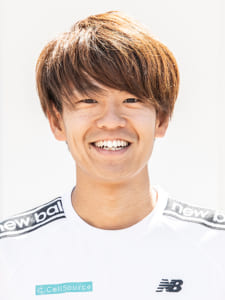Daichi Kamino
age: 26sponsor: Cell Source
graduated from: Chukyo H.S., Aoyama Gakuin University
best time inside MGC window:
2:10:18, 18th, 2018 Tokyo Marathon
PB: 2:10:18, 18th, 2018 Tokyo Marathon
other PBs:
5000 m: 13:56.05 (2018) 10000 m: 28:17.54 (2016) half marathon: 1:01:04 (2017)
marathons inside MGC window (Aug. 1 2017 – April 30 2019)
8th, 2019 Tokyo Marathon, 2:11:05
29th, 2018 Fukuoka International Marathon, 2:19:28
DNF, 2018 Berlin Marathon
18th, 2018 Tokyo Marathon, 2:10:18
13th, 2017 Fukuoka International Marathon, 2:12:50
other major results:
3rd, 2019 Shibetsu Half Marathon, 1:03:46
7th, 2019 Sendai International Half Marathon, 1:03:05
7th, 2018 Ageo City Half Marathon, 1:02:19
17th, 2018 Marugame Half Marathon, 1:02:35
2nd, 2018 New Year Ekiden Seventh Stage (15.5 km), 48:38
3rd, 2017 Ome 30 km Road Race, 1:31:33
5th, 2017 Marugame Half Marathon, 1:01:04 – PB
2nd, 2016 Kumamoto Kosa 10-Miler, 46:38
2nd, 2016 Hakone Ekiden Fifth Stage (23.2 km), 1:19:17
9th, 2015 Maugame Half Marathon, 1:01:21
1st, 2015 Hakone Ekiden Fifth Stage (23.2 km), 1:16:15 – CR
Kamino is one of the biggest Hakone Ekiden stars in the field, his reputation largely built on one record-breaking run on the uphill Fifth Stage in 2015 for four-time winner Aoyama Gakuin University. After graduating he joined the Konica Minolta corporate team, where his biggest result was a 1:01:04 at the 2017 Marugame Half Marathon to beat future marathon national record holders and MGC Race rivals Suguru Osako (Nike Oregon Project) and Yuta Shitara (Honda).
But after two seasons Kamino quit to go the independent sponsor route. In his marathon debut in Fukuoka later that year he ran only 2:12:50, following that up with a 2:10:18 in Tokyo 2018. Spending blocks of time training in Kenya and Ethiopia didn’t seem to help as he was a DNF in Berlin and ran only 2:19:28 in Fukuoka. In Tokyo this year he needed to run 2:11:42 or better to qualify for the MGC Race on the two-race sub-2:11 option, which he cleared with a 2:11:05.
Kamino is back in Kenya training for the MGC Race, but for all the potential he showed in Hakone and the half marathon he hasn’t really demonstrated the aptitude for marathon yet that he’ll need in order to be a factor. He has said that he plans to quit running after the Tokyo Olympics, and in interviews he has seemed to suggest that he prefers the fame and celebrity side of being an athlete to the actual running. Just making the MGC Race was a pretty big accomplishment, but without some kind of major step up it’s hard to see Kamino going any further than that.
Next profile: Sairi Maeda (Daihatsu).
© 2019 Brett Larner, all rights reserved


Comments